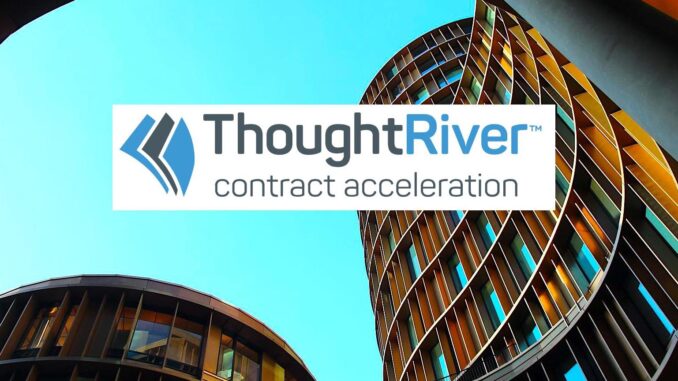
In a break with the strategy most NLP-driven doc review companies have taken so far, ThoughtRiver has launched a sector-specific tool targeting just the construction industry.
It’s a move that makes a lot of sense, given the fact that excelling in the use of NLP is all about subject matter focus. I.e. a very general language analysis tool without any particular target will end up giving you quite average results. It’s the specific training – whether pre-built or performed by the user, or in many cases both – that turns ‘vanilla’ NLP into something really useful.
This is the reason why the term ‘legal AI’ is in fact fairly descriptive, i.e. it’s NLP software that has been trained on specific types of legal documents, and also with a particular use case in mind, e.g. to highlight key clauses and how they may deviate from contract norms or a company playbook.
On top of that you can then add risk analysis, or provide automated alternative text. You can also adapt such tools to help with pre-signature review during contract negotiations, or as with many CLM systems use it mainly to extract data and create dashboards of what is in your contract stack. In short, it’s a very adaptable approach to contracting needs – but at its heart is always subject matter focus. So one of the main issues remains just how far will that focus go on any particular type of document.
Back to ThoughtRiver and construction. The UK-based company said that the tool ‘is tailored to reviewing construction and engineering agreements. The ThoughtRiver platform is already being used by law firm Shoosmiths, Engineering Consultancy Hoare Lea (part of the Tetra Tech Group), and engineering giant Schindler’. And that looks like a good start in terms of client uptake.
And, as readers will know, ThoughtRiver has been around for some time in the legal sector and is known for its contract review solution that can create a checklist of key legal risks and recommended actions.
So, why the special focus on this sector, in addition to keeping up with the broader approach to the legal world?
‘In terms of why we have done this, it just makes sense to be able to deliver a fully pre-configured product to match the needs of clients in that sector – making the product work for them on day one.
‘We had been pulled into construction by a client need and found a lot of synergy with our Lexible framework [the company’s NLP system], so it made a lot of sense. It’s similar to the way we have previously been pulled into telecoms, media, and logistics by client needs,’ a spokesperson told Artificial Lawyer.
Also, it’s worth noting that their Head of Legal Content, who has been responsible for developing and training the tool, is Iain Murdoch, which the company describes as ‘a well-known figure in the construction law world’ and who is the ex-Head of Construction Law for Practical Law.
Interestingly, back in October 2020, this site covered a US-based doc review company, Document Crunch, that had also launched in the construction sector, and which was based upon Kira Systems’ software. The team there had taken Kira and trained it specifically on construction sector documents in one of the only cases this site has seen of using Kira to create a new sector-specific company.
You may also remember legal sector NLP company Leverton, which started in Germany and was sold to MRI in the US in 2019, and had a strong focus on real estate, although not specifically construction and engineering. It is still going.
So, having a focus on a sector, or sub-sector, is not entirely new, but many doc analysis companies in the legal space have tended to be more generalist to allow them to handle more types of contract. One might say there is always a form of trade-off when it comes to NLP.
Commenting on the move, Tim Pullan, CEO and Founder of ThoughtRiver, said: ‘When speaking with Construction lawyers it quickly became apparent that our unique technology and content can offer significant benefits when applied to the review of construction and engineering agreements.
‘There is such an obvious synergy between what the industry needs in terms of contracting consistency, cost savings and portfolio risk visibility, and the capabilities we can offer. We are delighted that we’ve been able to develop a much-needed tool that is also a market first.’
However he also added that although in the past they have appeared to have a more generalist approach, the company had always been open to ‘developing tailored, industry-focused solutions’ for clients.
Meanwhile, Hamish Gray, Director of Legal and Commercial at Hoare Lea, added: ‘We scanned the market for an AI capability capable of being trained to review engineering appointments and found a clear winner in ThoughtRiver with a compelling business case supporting the investment. It is no surprise that they lead the way in contract acceleration for larger enterprises. The platform generates its first pass risk review in minutes, which is a fraction of the time it takes a human to read through a typical appointment.’
From direct experience, I would add that the ThoughtRiver team provides great client support, which is fundamental to ensuring the successful delivery and iteration of any legal tech tool. It will be interesting to see the next developments in the construction sector!